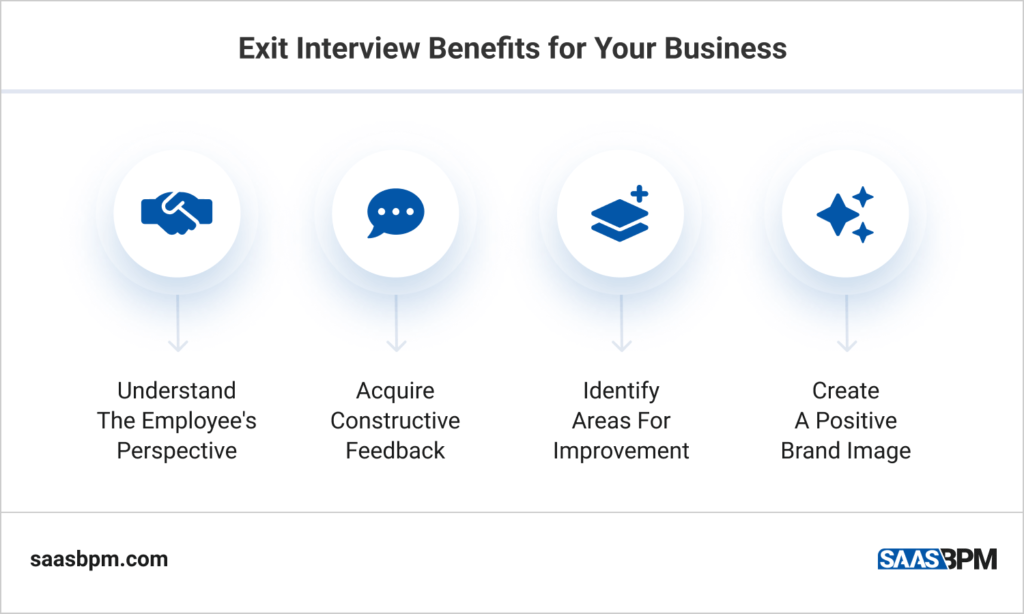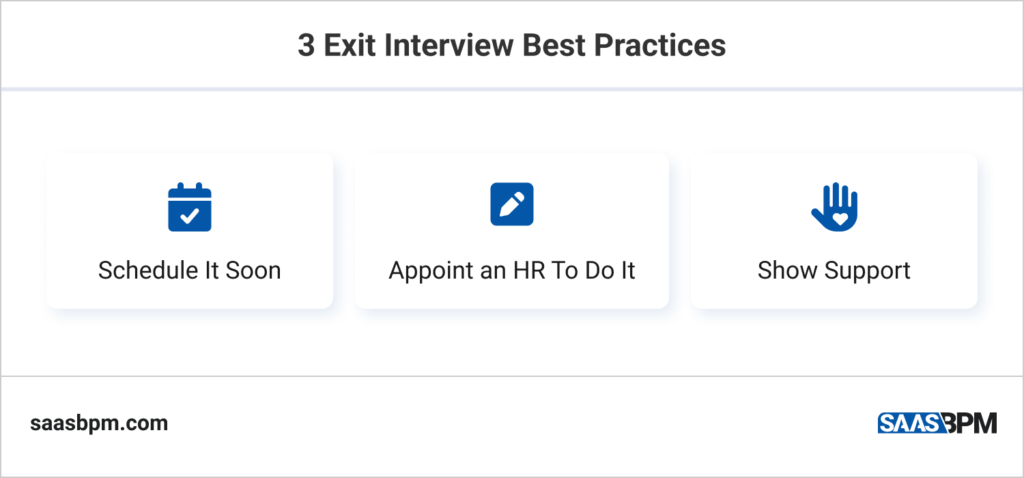Performing an exit interview is an important part of the HR process. They provide valuable insights that can help to improve recruiting and retention. However, they can also be used to gather feedback about other areas of the business. Also, they can cast light on any training or development needs that may have been neglected. In short, exit interviews are a valuable tool that can be used to improve all aspects of the organization.
The Great Resignation that occurred during the pandemic has a tendency to stay in 2022, too. The outbreak of the coronavirus and the resulting shutdowns caused a major shift in the world of work. For many companies, this meant a move from physical offices to fully remote work. This transition process posed challenges for keeping workflows efficient and results-oriented.
However, collaboration tools such as BPM software served as the perfect solution. These tools allow for transparent and efficient communication between team members. Also, they facilitate tasks and deadlines management. As a result, companies have been able to maintain productivity levels despite the challenges posed by the pandemic.
In this article, we will explain what the specifics of an exit interview are. Then, we will list a few typical questions and discuss best practices that will benefit both your business and the departing employee.
What Is An Exit Interview and Why Does It Matter?

In a nutshell, an exit interview is a final conversation an employer has with a resigning employee. It is in a Q&A form and has the sole purpose of gaining insights the employer could improve for the staff that are to stay.
As any business owner knows, feedback is essential for continued growth and improvement. One way to collect feedback from departing employees is through an exit interview. It’s important to give soon-to-leave employees the opportunity to share their honest opinions about their job, supervisor, and the organization as a whole.
Exit interviews can be conducted in person or virtually, and they provide valuable insights that can help businesses to improve their policies and procedures. Additionally, exit interviews can highlight any potential red flags that may indicate larger problems within the organization. By taking the time to investigate and fix them, businesses can ensure that they are always moving in the right direction.
Despite the many benefits of conducting exit interviews, there are also some potential drawbacks. For example, some employees may feel like they are being interrogated. Also, be aware they may not be entirely candid in their responses. Additionally, if an organization does not take action on the feedback that is collected, employees may feel like their opinions are not valued. Finally, some businesses may use exit interviews as a way to gather information about team members that could be used against them in the future.
How To Conduct An Exit Interview: 7 Questions
It’s important to get feedback from employees who are leaving the company. While you don’t want the conversation to appear mechanical, there are some essential questions you should ask in each exit interview. By doing so, you may compare answers and look for comparable comments.
Open the interview by telling the employee that he or she doesn’t have to answer all or any of your questions. Also, ask for permission to share the answers with management. If the employee doesn’t want you to share anything, show understanding.
However, when you get important feedback throughout the interview, paraphrase the remark and ask if it’s okay to share this particular detail. At the end, make sure to thank the employee and let them know that you’re available if there’s anything else.
Below, we have collected a few key exit interview questions to ask:
-What are the main reasons for leaving?
-Was there anything about your job that you didn’t like? If so, what was it?
-Do you feel like you had the opportunity to grow and develop within the company? If not, why?
-What could we have done to make your experience with us better?
-What will you miss most about working here?
-Do you have any suggestions on how we could improve our company or our processes?
-Is there anything else you’d like to share with us?
These questions will help you get feedback about the company, the employee’s experience, and what might be improved. However, keep in mind that every employee is different, so tailor the questions to fit the individual. As a result, you will develop a better understanding of why employees are leaving and what to do to retain them.
Exit Interview Best Practices

Schedule The Exit Interview ASAP
When an employee puts in their notice, waiting until their last day to hold an exit interview can be tempting. However, there are several reasons why it’s smarter to schedule the interview as soon as possible.
To begin with, you’ll have a better chance of receiving genuine feedback if the employee isn’t concerned about their upcoming departure. Secondly, you’ll be able to get more detailed information about the reasons for their leaving while it’s still fresh in their mind. Finally, rather than waiting weeks or months to find out what they have to say, you should schedule the interview as soon as possible.
This will demonstrate to the departing employee that you respect their ideas and are dedicated to making improvements for future team members.
Don’t Appoint The Employee’s Direct Manager To Conduct It
It is better to appoint someone else to lead the exit interview rather than the employee’s direct line of management. Even the best manager out there has flaws and there could be tension in their relationship.
A member of the HR team may be the best one to perform the task. They would know the responsibilities and departments the employee was involved in. Also, they would be able to impartially target the issues that lead to the resignation request.
Show Support
It’s only natural to feel disappointed when a top performer leaves your team. After all, they’re the ones who always hit their targets and contribute the most to your bottom line. However, while it’s easy to see their departure as a loss, it’s important to remember that it’s also an opportunity. Their new challenges will not only help them grow as professionals, but they’ll also hopefully come back to your company with fresh perspectives and skills.
So, instead of dwelling on what you’ve lost, focus on what you can gain. Genuinely express how much you appreciate their contributions and wish them well in their new endeavors. This positive attitude will help you attract even more top talent in the future.
Bottom Line
Exit interviews are a key part of the contract termination process. They can provide your business with valuable information that can help you improve your operations. By asking the right questions and following some best practices, you can make sure that your exit interviews are productive and helpful. If you’re looking for software to help make leading a team simple, SaaS BPM is a great option. Thanks for reading!

